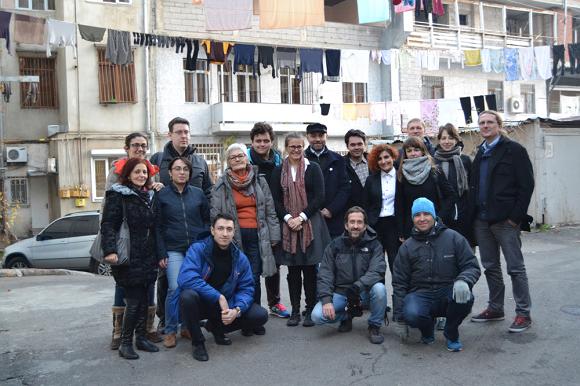The NHC has been observing the referendum together with partners in the European Platform for Democratic Elections (EPD) as well as with a large number of domestic observers from the Citizen Observer initiative.
– Despite a clear overweight of “no” votes in most of the polling stations where observers were present, and limited interest for the referendum in the population, the Central Election Commission published results that the amendments had passed with a 63 % majority and with a 50.5 % turn out, said Wetteland. “The overall conclusion of the observation is that these results do not reflect the will of the people. They are due to manipulation of voters’ lists and attendance, ballot-box stuffing, carousel voting, double-voting, falsification of protocols, and intimidation of voters and observers in a systematic manner all over the country.”
The amendments will change the country from having a semi-presidential system, to becoming a parliamentary republic. The changes will take place during the 2017-18 electoral cycle. According to critics, the amendments will enable the current president, Serzhe Sargsyan, to remain in power after his second term ends in 2018. He could then become prime minister with enhanced political powers, on the condition that his party, the Republican Party of Armenia, retains its strong position in the Parliament.
– It is highly problematic that numerous amendments were included in one referendum with so little public debate, said Wetteland. – In theory, changing to a parliamentary system could strengthen democracy and rule of law in the country. However, the amendments seems mainly to serve the narrow interests of the incumbent president. He may now be able to remain the dominant political figure after his second term ends.
On 7 December, the day after the referendum took place, Armenia started new negotiations with the EU. In 2013, Armenia had turned away from prospects of closer integration with the EU, choosing instead to become a member of the Russia-led Eurasian Union. – The NHC calls upon the EU to take notice of the Armenian authorities’ blatant disrespect for democratic principles in the way they organised the referendum. The EU should insist on strong provisions on adherence to democratic principles in any new agreement with Armenia, said Wetteland.
The amendments have several negative implications for human rights, in particular economic, social and cultural rights. They will also make it impossible for Armenia to become a member of the International Criminal Court (ICC), by acceding to the Rome Statute.
– Armenia now turns in a direction that could make the situation worse for its population, concluded Wetteland. “Armenians should stand up for their rights and demand that the authorities stand accountable to the people. The EU, the US, other democratic states and relevant international organizations should increase support of democratic forces and the civil society in the country.”
The EPDE observation mission consisted of staff from CVU Ukraine, Golos, SILC and the NHC. A group of six observers from Golos was observing elections as media representatives in cooperation with domestic observers. The Armenian EPDE member organisations Helsinki Citizen’s Assembly Vanadzor and Transparency International Armenia organised a national monitoring campaign, and had 700 observers in 500 polling stations all over the country.
Relevant links:
EPDE and Citizen Observer final report here
Pre-referendum report here
